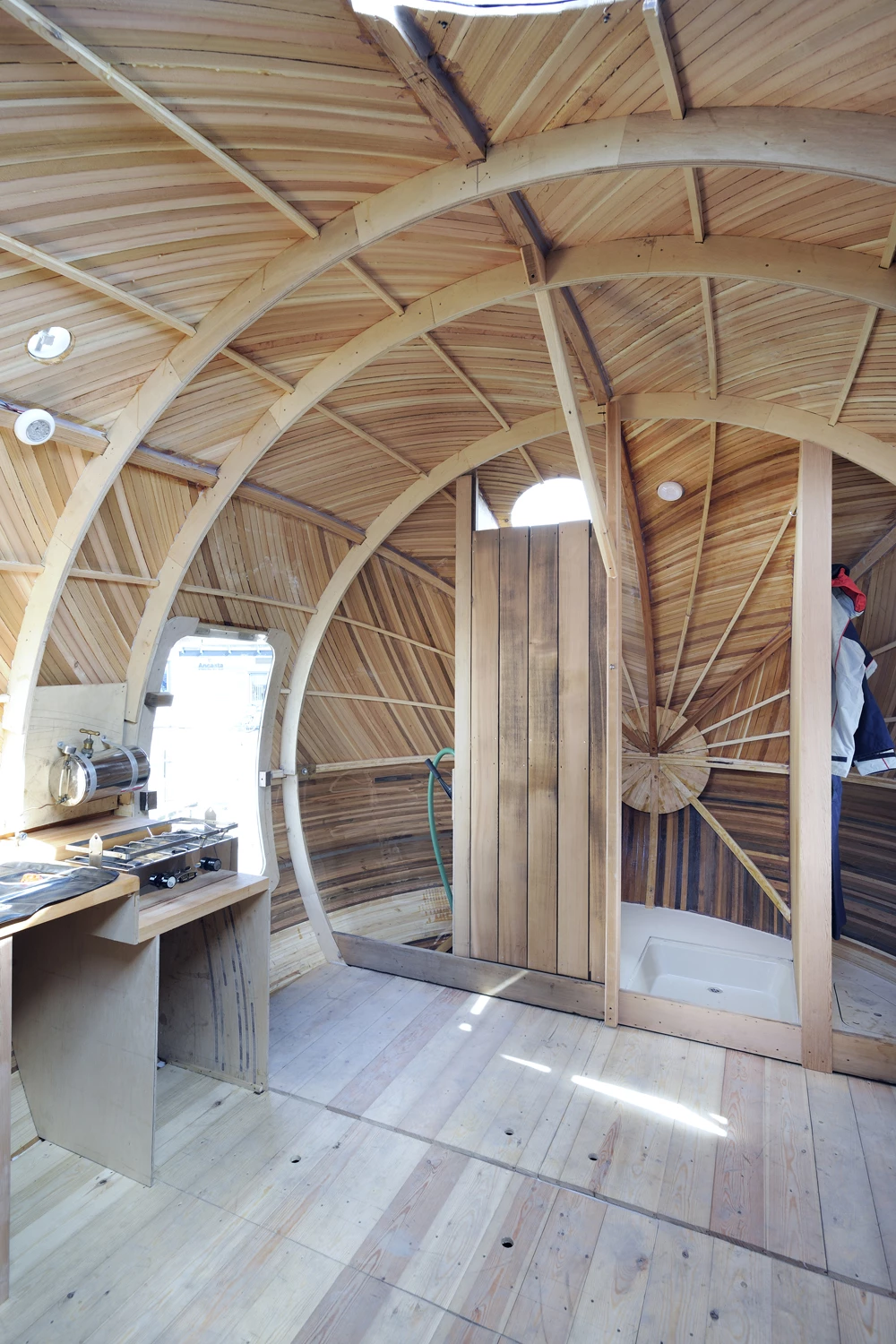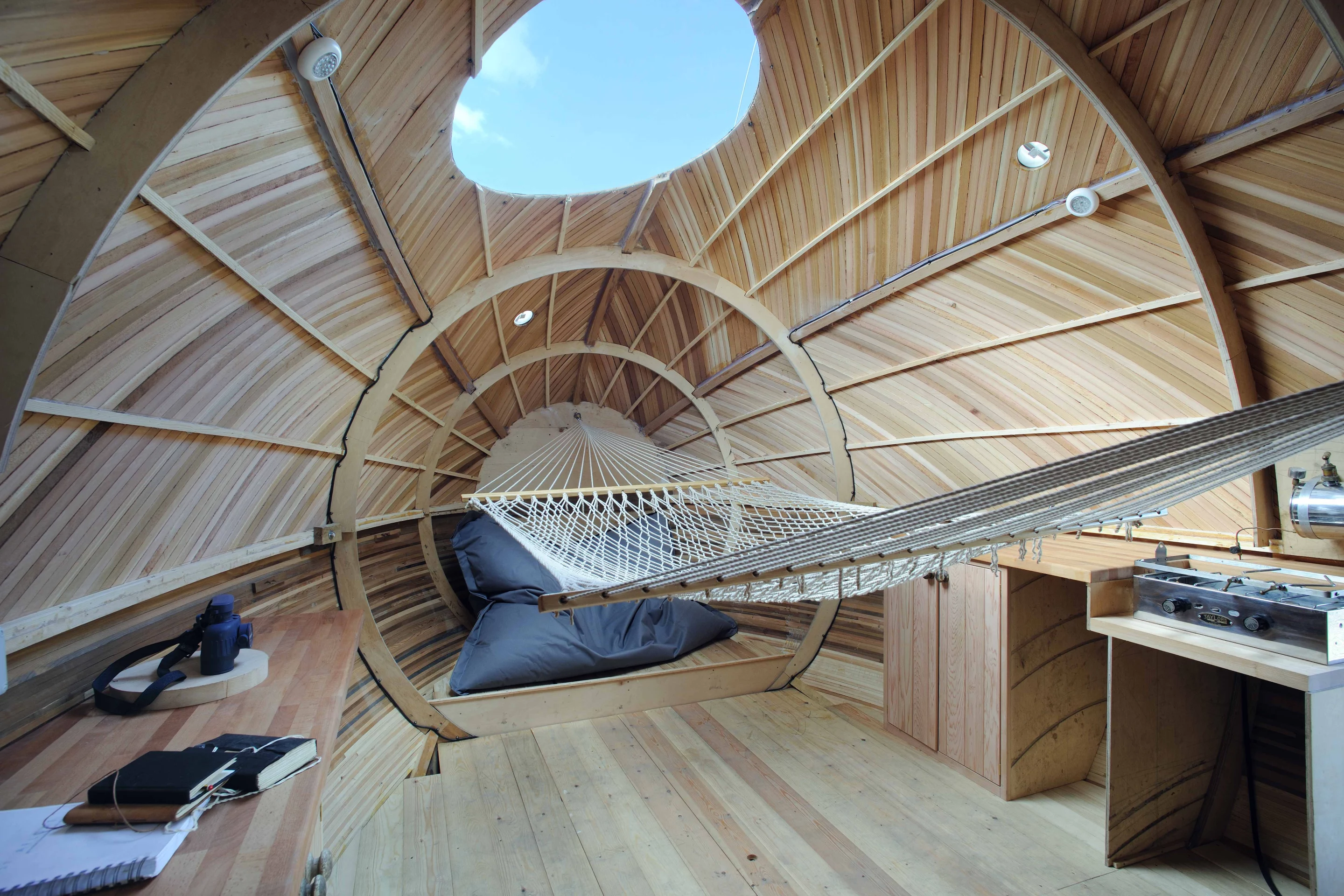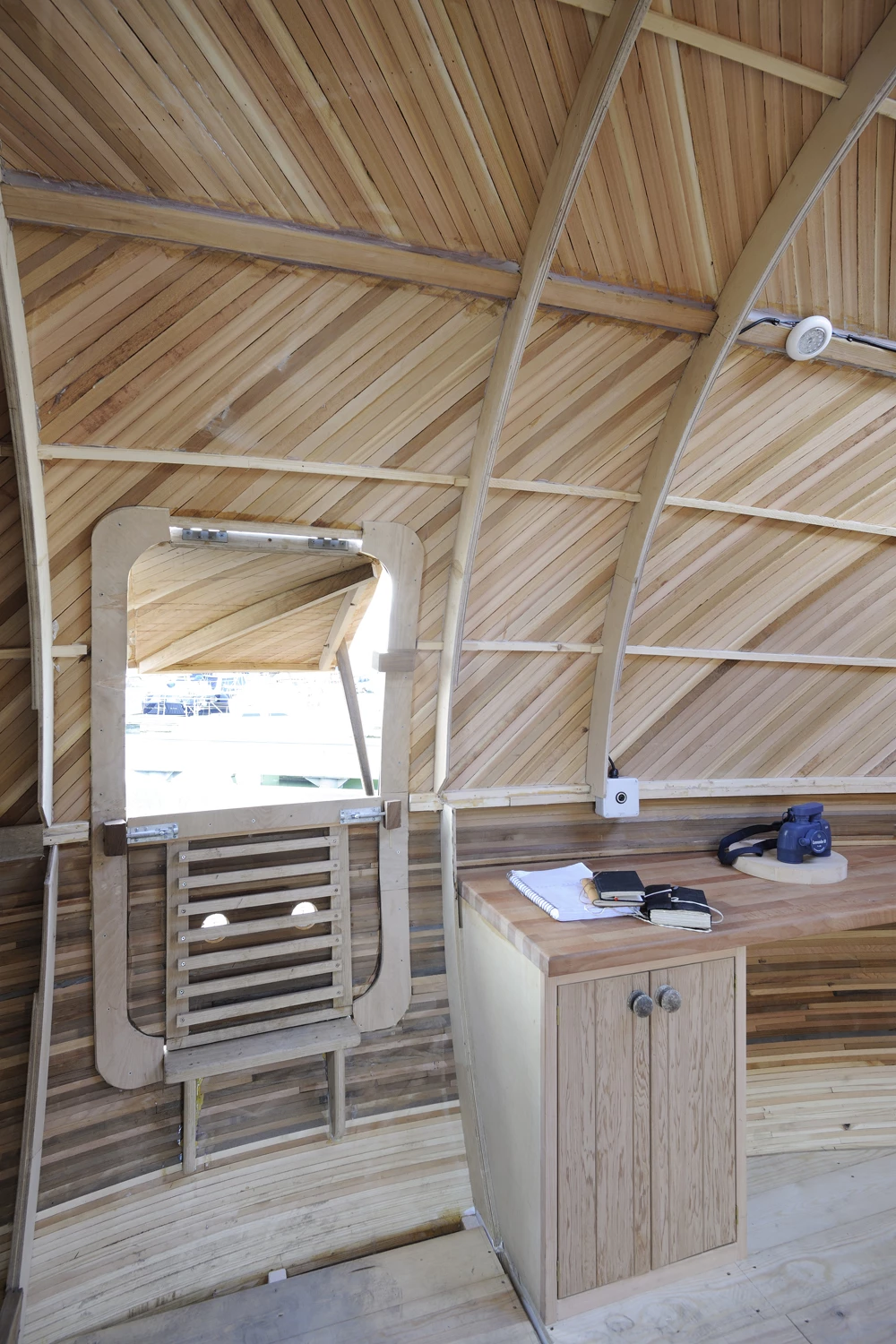Exbury Egg is a floating off-grid workspace and home, installed on the shore of the Beaulieu River, UK. It was conceived by artist Stephen Turner, and created with the help of both Perring Architecture and Design, and SPUD design studio. The egg-shaped structure will support Turner for a year as he carries out observations on the local environment and produces his works of art.
The shape of Exbury Egg was inspired by the nesting seabirds local to the Beaulieu River, and during the year in which it will be used as Turner's base, its exterior will weather and visually attest to its contact with the tides, wildlife, rain, and sun.
"I will seek to creatively map the inter-connection of life from the smallest invertebrates to the largest mammals and between fauna and changing flora during the course of four complete seasons," explains Turner. "During this time the Egg exterior will be scoured, scraped and bleached by sea, wind and sun, creating a natural patination which is in itself a calendar of the turning year."

As Exbury Egg is required to float, its construction was logically entrusted to local boat-builder Paul Baker, who used reclaimed cedar, and locally-sourced Douglas Fir to produce a buoyant, waterproof structure measuring roughly 6 x 2.8 m (20 x 10 ft). It will remain tethered in place by ropes.
Though not exactly bursting with home comforts, the snug space does provide the basic necessities. The interior contains a desk, hammock, and kitchen, which itself sports a paraffin stove and sink. However, there's no running water, so Turner makes use of a nearby hosepipe back on land. Access to the egg is afforded via a small pontoon bridge.
There's no electricity on-board, so the artist will rely on solar chargers to keep his cell-phone, digital camera, and laptop juiced-up.

Exbury Egg also has two cupboards shoe-horned into its small space. These act as wet and dry lockers for the artist's clothing and belongings. The wet lock drains into the Eggs bilges, which will be periodically pumped-out.
In between the cupboards is a wet room, which contains a basic solar shower, and the same type of portable toilet as commonly found on a boat or motorhome. Finally, a small charcoal burning stove will provide Turner with heating.
In addition to serving as Turner's workspace and occasional home, Exbury Egg will also be used as an educational tool, and local students have been invited to observe the design, building, and installation of the egg. It was put into place in late May and will remain for one year.
Source: Exbury Egg via Design Boom




















